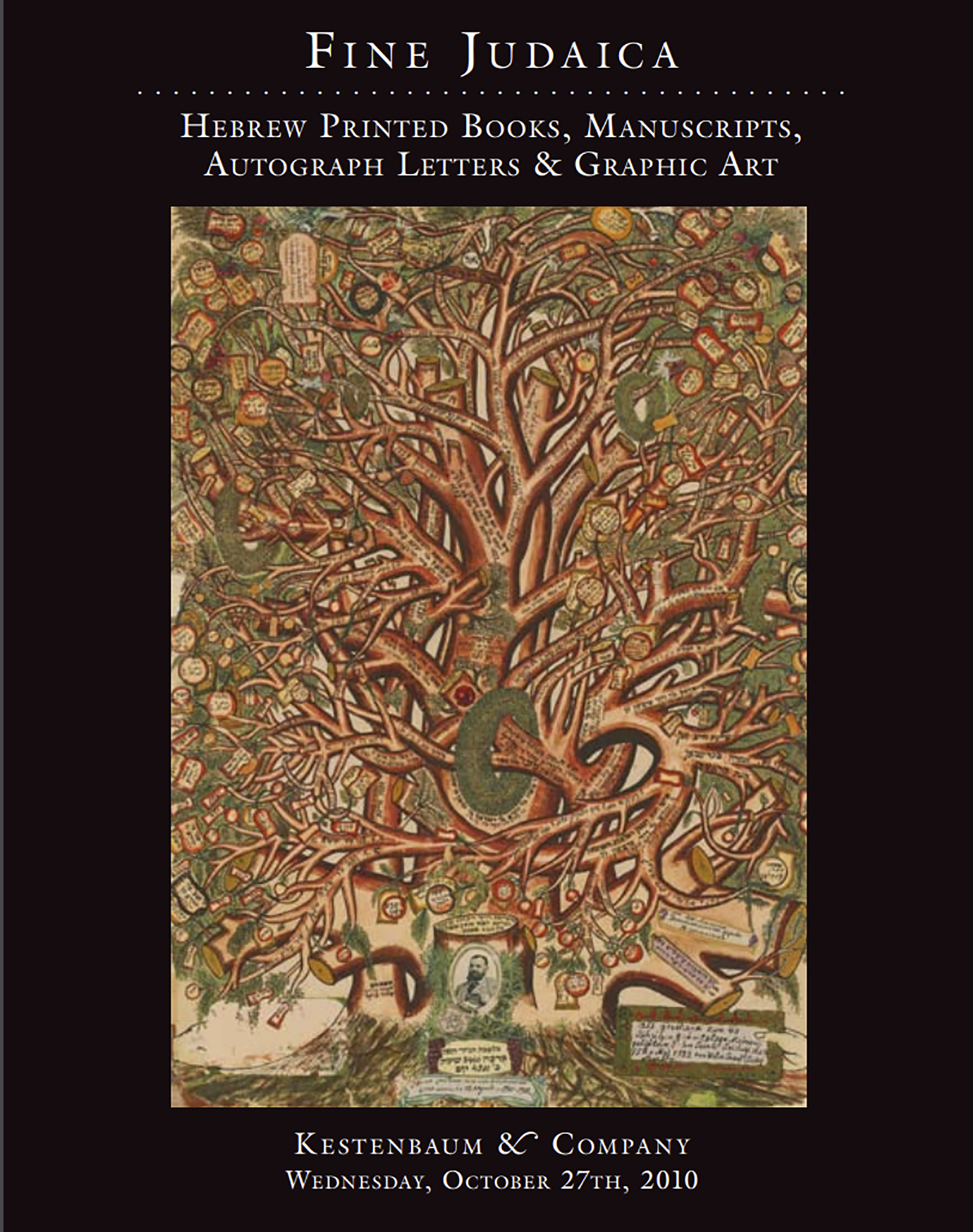(AMERICAN JUDAICA).

AUCTION 49 |
Wednesday, October 27th,
2010 at 1:00
Fine Judaica: Hebrew Printed Books, Manuscripts, Autograph Letters and Graphic Art
Lot 14
(AMERICAN JUDAICA).
Baltimore: May 29 1819
Est: $2,000 - $3,000
While the Federal Constitution and Bill of Rights guaranteed full equality to the Jews of America, its provisions were not binding on State governments prior to the passage of the Fourteenth Amendment in 1868. Consequently, every State, with the exception of New York, proceeded to adopt a Constitution that deprived the Jews of political equality. In Maryland alone there was a protracted struggle to invest the Jews with political equality.
Maryland’s first Constitution, passed in 1776, retained a colonial statute requiring all public servants to invoke a Christian oath. Not only were governmental officials and members of the legislature considered public servants, but so were lawyers, militia officers and jurors. Thus, a Jew was deprived of a possible professional livelihood and opportunity to demonstrate loyalty to his country. Maryland Jews protested their inferior status as early as 1797, but it was not until 1826, when the Jew Bill was confirmed by the legislature, that Jews were alleviated of all disabilities. The staunchest advocates of the Jewish cause during this struggle were Thomas Kennedy of Washington County, Judge Henry M. Brackenridge of Baltimore, Ebener S. Thomas and Colonel William G.D. Worthington. Militating for passage of the Bill were the Jews of Baltimore, a sizable community of some 150 souls, led by Solomon Etting (1764-1847). The Jew Bill was defeated in 1819 but finally passed in 1826.
Despite the fact that it was a State issue, the impact of the Jew Bill extended well beyond Maryland, it caught the young nation's attention and reverberated overseas. In Britain, where the Jewish Question was an even more contentious issue, members of Parliament received copies of pro-Jew Bill speeches: "Speeches on the Jew Bill in the House of Delegates in Maryland " (Phila., 1829) - See Kestenbaum Auction XXX, Lot 27.
For further, see S.F. Chyet, "The Political Rights of the Jews in the United States," American Jewish Archives 10.1 (Apr. 1958): 14-75; Edward Eitches, "Maryland's Jew Bill," American Jewish Historical Quarterly 60.3 (Mar. 1971): 258-279; A.J. Karp, Beginnings: Early American Judaica (1975), pp. 31-36
